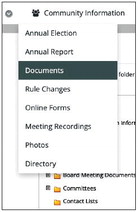Look out for these Social Security Scams
WATCH YOUR STEP
Social Security numbers are the skeleton key to identity theft.
And what better way to get someone’s Social Security number than by pretending to be from Social Security?
Social Security scams are the most common form of government impostor scam, in which scammers pose as government officials to get people to send money or give up personal and financial data for use in identity theft.
Social Security’s Office of the Inspector General (OIG) received more than 718,000 complaints about scams in the 12 months ending Sept. 30, 2020, a 50-percent increase from the same period a year before. Reported losses from those cases approached $45 million.
One common tactic involves fake Social Security Administration (SSA) employees calling people with warnings that their Social Security numbers have been linked to criminal activity and suspended.
The scammers then ask the person to confirm his or her number to reactivate it or to claim they can issue a new one for a fee. This is only a scheme to get money and personal data. It’s important to always remember that Social Security does not block or suspend numbers, ever.
This con is often executed via robocall. The recording provides a number for people to call to remedy the problem. In another version, the caller says the bank account is at risk due to the illicit activity and offers to help keep it safe.
Another popular scam is receiving a call from a supposed SSA representative bearing good news such as a cost-of-living increase in your benefits. To get the extra money, you have to verify your name, date of birth and Social Security number. Armed with those identifiers, scammers can effectively hijack the account, ask SSA to change the address, phone number and direct deposit information on your record and thus diverting your benefits.
Remember that the SSA will almost never contact you out of the blue. It will only text you if you’ve opted to receive notifications that way, or to verify your identity when you access your online My Social Security account. If you do owe the agency money—for a benefit overpayment, for example—you’ll get an official letter outlining your payment options and appeal rights. With a little vigilance, it’s not difficult to spot when a Social Security contact is a sham.
Warning Signs:
You get an unsolicited call from someone claiming to work for SSA. Except in rare circumstances, you will not get a call from Social Security unless you have already been in contact with the agency.
A call, text or email threatens consequences such as arrest, loss of benefits or suspension of your Social Security number if you do not make an immediate payment by gift card, prepaid debit card, wire transfer or cryptocurrency.
If you receive a message or phone call like any of the examples listed above, remain calm and follow these simple guidelines: DO:
• Hang up if someone calls you out of the blue and claims to be from SSA.
• Be skeptical if a caller claims to be from Social Security’s Office of the Inspector General. Scammers appropriate official-sounding and often actual government titles to make a ruse seem authentic.
• Set up a My Social Security account online and check it on a monthly basis for signs of anything unusual, even if you have not yet started collecting benefits.
• Install a robocall-blocking app on your smartphone, or sign up for a robocall-blocking service from your mobile network provider.
DON’T:
• Call a phone number left on your voice mail by a robocaller. If you want to contact SSA, call the customer service line at 1-800-772-1213.
• Assume a call is legitimate because it appears to come from 1-800772-1213. Scammers use “spoofing” technology to trick caller ID.
• Give your Social Security number or other personal information to someone who contacts you by email. SSA never requests information that way.
• Click links in purported SSA emails without checking them. Hover the arrow over the link to reveal the actual destination address. The main part of the address should end with “.gov/” — including the forward slash. If there’s anything between .gov and the slash, it’s fake.
More Resources:
Call Social Security’s customer service line at 1-800-772-1213 to confirm whether a communication purporting to be from SSA is real.
If you get an impostor call or email, report it to SSA using their detailed online form. You can also call Social Security’s Fraud Hotline at 1-800-269-0271.
If your Social Security number has been stolen, file an identify theft report with the Federal Trade Commission, which can help you develop a recovery plan.
-www.AARP.com





